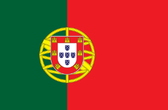
Call 0330 880 3600 Calls may be monitored or recorded. Opening Times.
- TRAVEL INSURANCE
- COVID-19 COVER
- More Options
- Help & Advice
- Existing Customers

Call 0330 880 3600 Calls may be monitored or recorded. Opening Times.

Need help?
UK Customer Services0330 880 3600*
Open Monday to Friday 9:00am to 6pm, Saturday 8:30am to 4pm and closed Sundays.
*Calls are recorded for training and quality purposes.
Other Guides

Official name: Portuguese Republic
Capital city: Lisbon
Languages spoken: Portuguese
Population: Around 10.3 million
Currency: Euro (EUR)
Time zone: GMT+0
Driving side: Right
Climate: Mediterranean, with hot summers, mild winters, and plenty of sunshine along the coast
Portugal combines golden beaches, vineyard-covered hills, and centuries of seafaring history. Known for its relaxed lifestyle, world-class wines, and traditional fado music, the country offers a mix of vibrant cities and sleepy villages. From the cobbled streets of Lisbon and Porto to the Algarve’s coastal cliffs and the Azores’ volcanic landscapes, Portugal is a destination where heritage and natural beauty meet in equal measure.
Located on the Iberian Peninsula, Portugal shares its only land border with Spain and is surrounded by the Atlantic Ocean to the west and south. The terrain varies from rolling plains in the Alentejo to rugged mountains in the north and lush islands in the Azores and Madeira archipelagos. The Douro and Tagus rivers are key geographical features that shape much of the landscape.
Lisbon Portela Airport and Porto Airport are the main international gateways, with Faro serving the Algarve and Ponta Delgada connecting the Azores. Portugal has a reliable rail and bus network linking its cities, and driving along the well-maintained roads is popular with tourists. Ferries connect the mainland to the islands, though most travellers prefer flights. Public transport in Lisbon and Porto includes metro, trams, and buses, making city travel straightforward.
As an EU and Schengen Area member, Portugal allows UK citizens and many other nationals visa-free entry for up to 90 days in any 180-day period. Longer stays for work, study, or residence require appropriate visas or permits. The British Embassy is located in Lisbon.
The euro (EUR) is the official currency of Portugal. Credit and debit cards are widely accepted, including in smaller businesses, though cash is still useful in rural areas and local markets. ATMs are common and offer multilingual services. Portugal is generally affordable compared to Western Europe, though tourist hotspots like Lisbon and the Algarve can be more expensive.
Portugal’s healthcare system is of a good standard, with hospitals and clinics well-equipped in major towns and cities. EU citizens can use a GHIC/EHIC card for access to necessary treatment, but comprehensive travel insurance is recommended for private care and repatriation. Pharmacies are easy to find, often marked with a green cross, and tap water is safe to drink throughout the country.